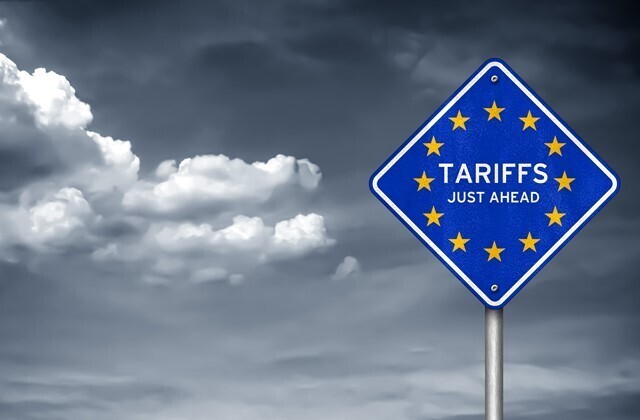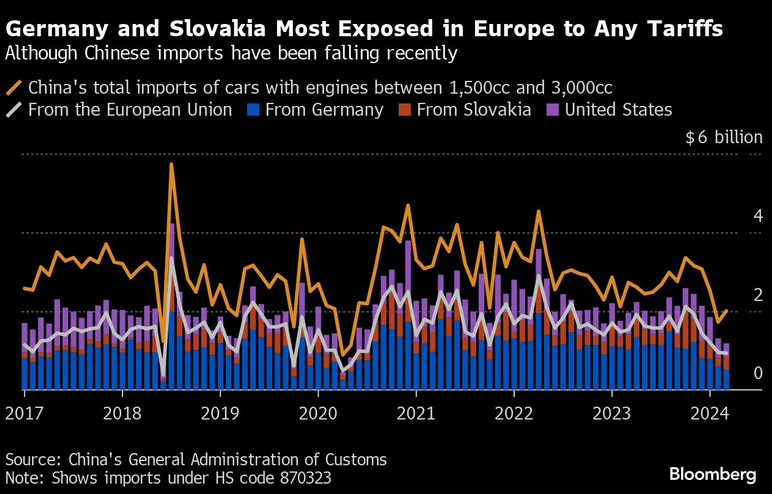

France, Greece, Italy, and Poland are among the major EU nations expected to vote in favour of up to 45 per cent tariffs on imports of Chinese-made electric vehicles (EVs), while Germany is likely to abstain. Despite Germany's concerns over potential retaliatory actions from Beijing, the European Union is set to approve the tariff plan.

The European Commission, which is conducting an anti-subsidy investigation into Chinese EVs, has submitted the proposal to the EU's 27 member states for a vote on October 4. According to EU regulations, the Commission can impose these tariffs for five years unless a qualified majority—15 member states representing 65 per cent of the EU population—votes against it. Officials and sources confirmed that France, Italy, Poland, and Greece are expected to support the measure, collectively accounting for 39 per cent of the EU's population.
Germany is sceptic
Germany has expressed scepticism about the proposed tariffs, fearing they could spark a trade war at a time when automakers like Mercedes, BMW, and Volkswagen are selling hundreds of thousands of cars each year in China. On October 2, German Chancellor Olaf Scholz indicated that his government, which abstained during a previous vote on the tariffs in July, might do so again due to differing opinions within its three-party coalition.
Europe's auto industry, particularly Germany's three major carmakers, has largely opposed the proposed tariffs. BMW, Mercedes, and Volkswagen, each of which sells nearly a third of their vehicles in China, have urged the German government to vote against the tariffs ahead of the upcoming decision.
Commission President Ursula von der Leyen, who initiated the investigation a year ago, emphasised the need for EU industry to safeguard itself against a potential influx of inexpensive Chinese electric vehicles (EVs) that benefit from state subsidies. The Commission reports that registrations of China-made EVs in the EU market increased from 3.5 per cent in 2020 to 27.2 per cent in the second quarter of 2024, while the market share of Chinese brands grew from 1.9 per cent to 14.1 per cent. Additionally, the Commission highlighted that China has a spare production capacity of 3 million EVs annually, which is twice the size of the entire EU market.

Image Source - Bloomberg
Supporting the tariffs
French President Emmanuel Macron expressed his support for the tariffs, stating that the level of Chinese subsidies is "unbearable." Meanwhile, the Czech Industry and Trade Ministry has not disclosed how it will vote but acknowledged the Commission's findings regarding "China's unfair practices" and noted that countries like the United States, Canada, Turkey, and Brazil have already taken action.
The stance of Spain, which previously supported the tariffs, is now uncertain after Prime Minister Pedro Sanchez suggested during a visit to China in September that the EU should reevaluate its position. The Commission can proceed with the tariffs with support from just four countries; however, it also has the option to submit an amended proposal to garner broader support.
The Commission has indicated its willingness to negotiate alternatives to tariffs with China. It may consider a "price undertaking" involving establishing a minimum import price and a typical volume cap. One option currently under discussion involves setting minimum import prices based on criteria such as the electric vehicle's range, battery performance, size, and whether it is two- or four-wheel drive, according to a source familiar with the negotiations. Another alternative being explored is a commitment from China to invest in the EU, potentially accompanied by quotas during a transitional period.
The potential imposition of tariffs has prompted several Chinese automakers to consider investing in factories in Europe, despite the higher labour and manufacturing costs. Brands like BYD and Chery are planning assembly sites within the region. The proposed tariffs range from 7.8 per cent for Tesla to 35.3 per cent for SAIC, which owns the MG brand, in addition to the EU's standard 10 per cent import duty on cars.



Responses






